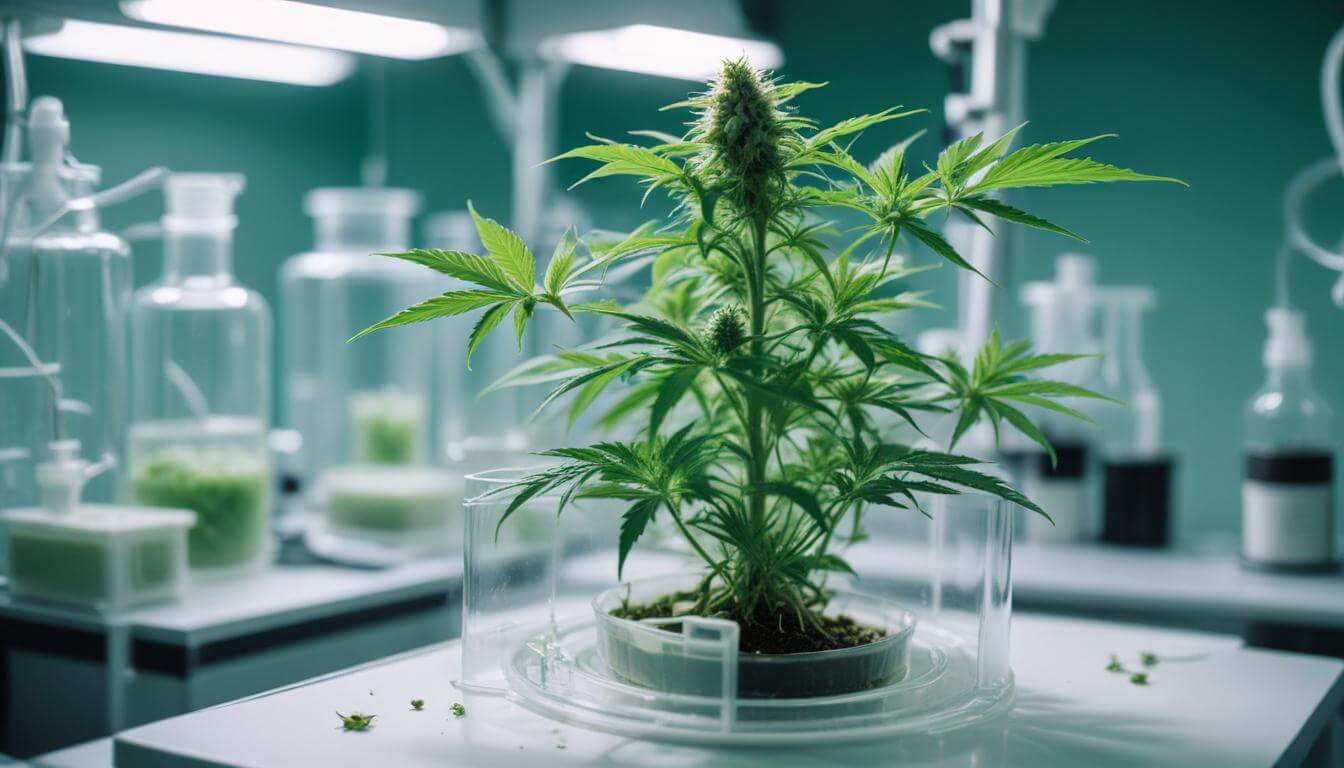As the demand for high-quality, medicinal-grade cannabis continues to grow, researchers are tirelessly seeking novel ways to optimize its cultivation. One revolutionary approach is the development of precise, controlled in vitro flowering systems. This groundbreaking method ensures consistent plant growth under monitored conditions and holds significant promise for advancements in sterile cannabinoid production and breeding techniques.
Transforming Cannabis Cultivation Through In Vitro Techniques
Cannabis sativa, renowned for its therapeutic benefits, faces several cultivation challenges due to its dioecious nature and stringent photoperiodic requirements essential for flowering. Conventionally, achieving optimal flowering necessitates careful control over environmental factors like light and pollen contamination. However, these traditional methods often fall short in maintaining constant, controlled conditions year-round.
The Science Behind In Vitro Flowering
In vitro flowering presents a sophisticated alternative where cannabis plants can develop within a meticulously managed environment. By harnessing this technique, plants undergo their lifecycle stages—including flowering—outside their native soil habitat. Key to this process is employing specific growth mediums and conditions that replicate natural cues required for flower induction.
Optimizing Growth Conditions
The research underscores the effectiveness of DKW medium supplemented with 2% sucrose for fostering in vitro flower development. Additionally, low light intensity plays a crucial role in triggering efficient flowering. These optimized conditions not only enhance inflorescence formation but also pave the way for seed production vital for breeding programs. Ensuring filtered environments further improves plant vitality, suggesting photosynthesis indeed occurs, albeit within an artificial setting.
Implications for Sterile Cannabinoid Production
A standout benefit of this in vitro system is its potential in producing sterile cannabinoids. Traditional outdoor or greenhouse cultivation is plagued by issues like pollen dispersion, which can lead to undesired fertilization and cross-contamination among plants. By contrast, the in vitro method provides a controlled platform devoid of such risks, facilitating the direct synthesis of cannabinoids without external pollutants.
Revolutionizing Breeding Programs
This system revolutionizes breeding practices, offering a reliable means to cultivate cannabis plants free from genetic inconsistency. Breeders can produce uniform plants with predictable traits, significantly enhancing the efficiency of creating new strains with desired characteristics. Moreover, year-round cultivation capabilities ensure ongoing supply regardless of seasonal changes, thereby stabilizing the market and supporting continuous research efforts.
Future Directions and Research Potential
Although the current findings represent a considerable advancement in cannabis cultivation, they also highlight areas for future exploration. One intriguing aspect is the effect of forced ventilation on photosynthesis and overall plant health within in vitro conditions. As researchers delve deeper into optimizing these systems, the interplay between ventilation and plant physiology could unlock even more precise control mechanisms, further refining in vitro flowering protocols.
The Road Ahead
Continued research is imperative to address remaining questions and fine-tune these methodologies. Potential developments might include advanced nutrient formulations, innovative lighting solutions, and automation technologies to streamline cultivation processes. Collaborative efforts between botanists, agricultural scientists, and biotechnology experts will be pivotal in driving these advancements forward.
The advent of efficient in vitro systems marks a transformative leap in cannabis cultivation. By providing standardized growth conditions and eliminating common contaminants, these techniques offer unparalleled control over the production of cannabis flowers and cannabinoids. As research progresses, the scope for precision farming, enhanced breeding programs, and sterile product creation is bound to expand, heralding a new era in the sustainable and scientific cultivation of cannabis.
In sum, in vitro flowering technology stands as a beacon of innovation in cannabis research. Its successful integration into commercial cultivation could profoundly impact the industry, ensuring quality, consistency, and purity in cannabis products, ultimately benefiting both growers and consumers alike.





